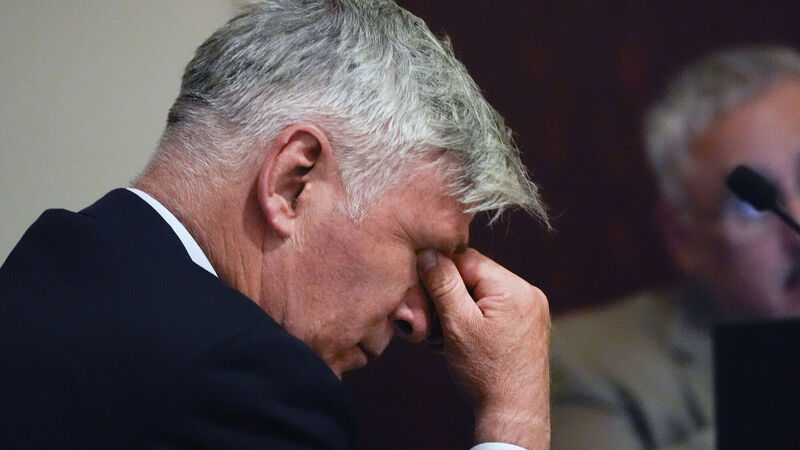‘A botched prosecution’: Alec Baldwin’s trial gets shock ending fit for Hollywood

Alec Baldwin wipes tears from his eyes in court. The actor's involuntary manslaughter trial was dismissed last week.
When Alec Baldwin set out to make the western in 2021, it was a passion project for the veteran actor.
He co-created the story, served as a producer, and starred as the film’s lead Harland Rust, an outlaw with a bounty on his head.













